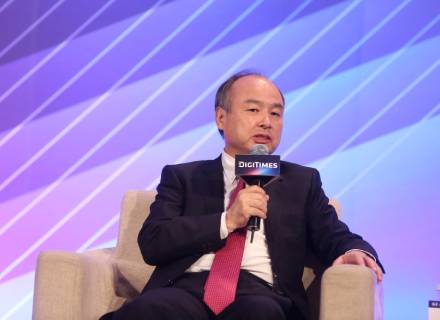SoftBank Group, a Tokyo-based multinational conglomerate, is well-known for its wide range of investments in technology, telecommunications, finance, and other sectors. The company was founded in 1981, and since then, it has developed into one of the most significant corporations in the world, focusing on advancing disruption and technological innovation. The business is run by several investment arms and subsidiaries, such as SoftBank Corp, SoftBank Investment Advisers, and SoftBank Vision Fund.
The SoftBank Vision Fund, the largest technology investment fund in history, was established in 2017 with an astounding USD 100 billion capital commitment, making it one of SoftBank’s most noteworthy projects. The Vision Fund seeks to invest in high-potential technology companies, with a focus on those operating in fields like biotechnology, robotics, Internet of Things (IoT), artificial intelligence, and robotics. SoftBank has made large investments in well-known tech firms like Uber, WeWork, Slack, and Alibaba through this fund.
As part of its investment strategy, SoftBank frequently places audacious and calculated wagers on cutting-edge trends and disruptive technologies, which can occasionally result in both notable failures and spectacular wins. The company’s investment strategy is distinguished by its readiness to assume sizable risks in the interest of sustained innovation and growth.
Through its subsidiary SoftBank Corp, SoftBank engages in business outside of investments in the telecommunications sector. SoftBank Corp is a prominent mobile network operator in Japan, offering a comprehensive range of fixed-line, broadband, and mobile telecommunication services.
SoftBank has encountered difficulties despite its achievements, most notably concerning its investment in WeWork, which ran into serious problems with corporate governance and finances. SoftBank has also had to re-evaluate its investment strategies and portfolio management as a result of the COVID-19 pandemic’s effects on a few of the companies in its portfolio.
SoftBank Group continues to be a powerful force in the global business scene. It does this by using its financial resources, strategic vision, and technological know-how to influence many industries and spur global innovation.
The brain behind this successful venture is Masayoshi Son, a Japanese billionaire technology entrepreneur, investor and philanthropist. He is also the founder, representative director, and corporate officer of the company.
-
Who is Masayoshi Son?
- Born in 1957 on the island of Kyushu, Japan, Masayoshi Son studied computer science and economics at the University of California, Berkeley
- At the age of 19, he was inspired by a microchip he saw in a magazine and became convinced that computer technology would start the next industrial revolution
- Masayoshi Son, while still in college, initiated his first business venture by developing an electronic translator with faculty assistance, ultimately selling it to Sharp Corporation for USD 1.77 million
- After completing his degree in 1980, he started a video game company called Unison World in Oakland, CA.
- Masayoshi Son later sold the company to an associate for close to USD 2 million, and the company was eventually acquired by Kyocera
- In 1981, he founded SoftBank Group, which focused on advancing disruption and technological innovation
- Masayoshi Son promised to help the victims of the 2011 Tohoku earthquake and tsunami by donating 10 billion yen (USD 120 million) and his remaining salary until retirement in 2011
- In 2013, he was placed 45th on the Forbes magazine’s list of the World’s Most Powerful People, and in the 2018 ranking, he was placed in the 55th position
- As of 2023, Masayoshi Son ranks 69th on Forbes’s list of The World’s Billionaires and is at 239 on the Bloomberg Billionaires Index
- According to Forbes, as of 2024, Masayoshi Son’s net worth is around 2,870 crores USD
Leveraging AI
SoftBank, Nvidia, Microsoft, and other tech sector stakeholders announced that they have joined forces to create an alliance focused on leveraging artificial intelligence to optimise the use of mobile base stations.
The AI-Ran Alliance’s members want to collaborate to avoid network bottlenecks and encourage the usage of generative AI-powered smartphone apps.
The initiative was introduced in Spain during the Mobile World Congress, an international trade show for the telecom sector. The team will use artificial intelligence (AI) to process data at mobile base stations instead of in the cloud, which will help save energy and reduce latency in communications.
SoftBank President and CEO Junichi Miyakawa stated in a statement that the alliance “has been formed with the vision to spearhead the advancement of society through AI innovations, particularly from the telecom industry.”

